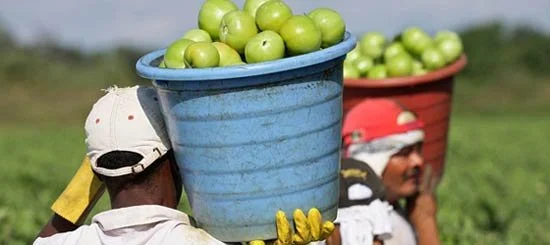Tomato Justice
My latest writing project for PRISM has been published as the cover story for the May/June 2012 issue, focusing on tomatoes, migrant farmworkers, and a small town in Florida that has been called “ground zero for modern-day slavery.”
It tackles some uncomfortable realities and will hopefully challenge you to think more carefully (and more theologically!) about your food choices, but I loved researching and writing it because in the end, it’s mostly an encouraging success story. Efforts to ensure farmworkers earn a decent wage and are shown a basic level of respect in the workplace (i.e., not held in slavery or being sprayed with pesticides while pregnant, for a start) have largely been successful. One important hurdle remains, but given the successes I highlight, it no longer seems insurmountable.
For this piece I interviewed a Guatemalan migrant farmworker, an advocate for farmworker rights working in Immokalee, the author of a book called Tomatoland, the former speechwriter and press secretary for Cesar Chavez, a professor who is writing a book about Chavez’s faith, and an author/speaker/activist you may have heard of named Brian McLaren. Thanks to each of you for taking the time to speak with me; your insights made this story possible.
So, without further delay, I give you: Tomato Justice.
To learn more about the people, organizations and issues in this story, I’d encourage you to begin by checking out Coalition of Immokalee Workers and this post from Brian McLaren.
